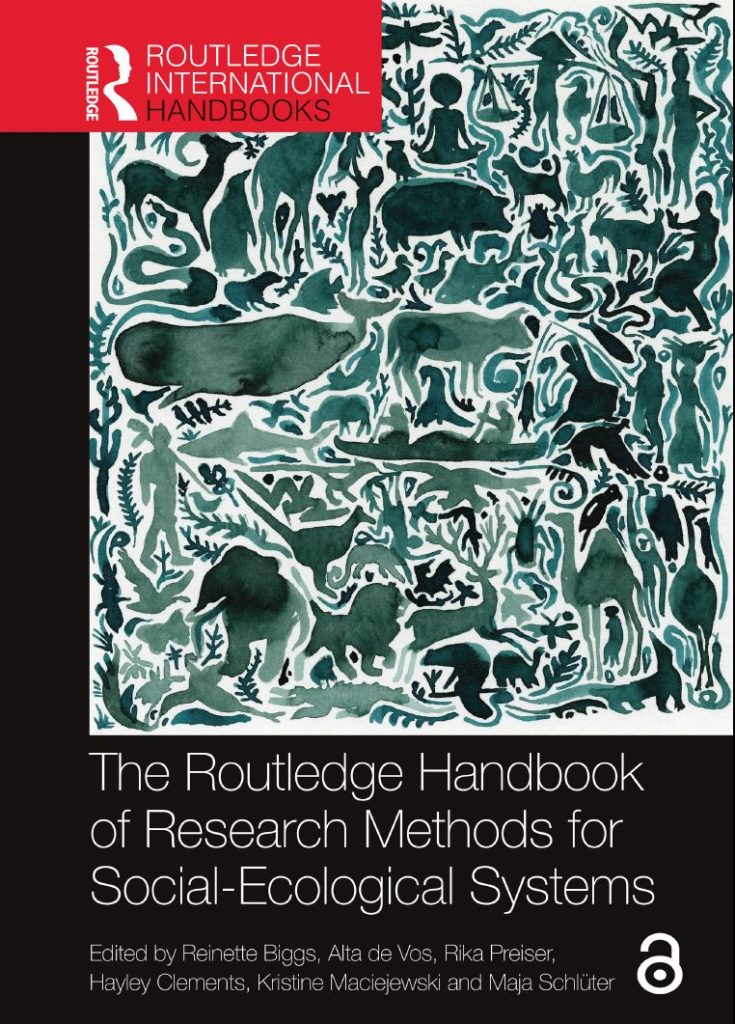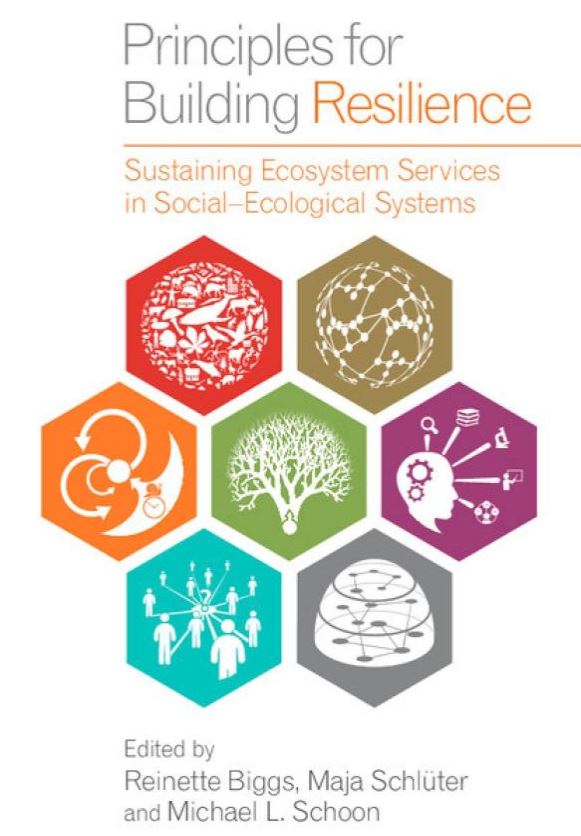Browse here for a selection of books that focus on applying resilience thinking. Please click on the images to navigate to more information about the resource.

The Routledge Handbook of Research Methods for Social-Ecological Systems
Edited by Biggs, R., de Vos, A., Preiser, R., Clements, H., Maciejewski, K., & Schlüter, M.
Routledge, 2021
The first book to provide a guide and introduction specifically focused on methods for studying social-ecological systems (SES), this book is primarily targeted at graduate students, lecturers and researchers working on SES, and has been written in a style that is accessible to readers entering the field from a variety of different disciplinary backgrounds. Each chapter discusses the types of SES questions to which the particular methods are suited and the potential resources and skills required for their implementation, and provides practical examples of the application of the methods. In addition, the book contains a conceptual and practical introduction to SES research, a discussion of key gaps and frontiers in SES research methods, and a glossary of key terms in SES research. Contributions from 97 different authors, situated at SES research hubs in 16 countries around the world, including South Africa, Sweden, Germany and Australia, bring a wealth of expertise and experience to this book.

Principles for Building Resilience: Sustaining Ecosystem Services in Social-Ecological Systems
Edited by Biggs, R., Schlüter, M., & Schoon, M.L.
Cambridge University Press, 2015
As both the societies and the world in which we live face increasingly rapid and turbulent changes, the concept of resilience has become an active and important research area. Reflecting the very latest research, this book provides a critical review of the ways in which resilience of social-ecological systems, and the ecosystem services they provide, can be enhanced. With contributions from leaders in the field, the chapters are structured around seven key principles for building resilience: maintain diversity and redundancy; manage connectivity; manage slow variables and feedbacks; foster complex adaptive systems thinking; encourage learning; broaden participation; and promote polycentric governance. The authors assess the evidence in support of these principles, discussing their practical application and outlining further research needs. Intended for researchers, practitioners and graduate students, this is an ideal resource for anyone working in resilience science and for those in the broader fields of sustainability science, environmental management and governance.
